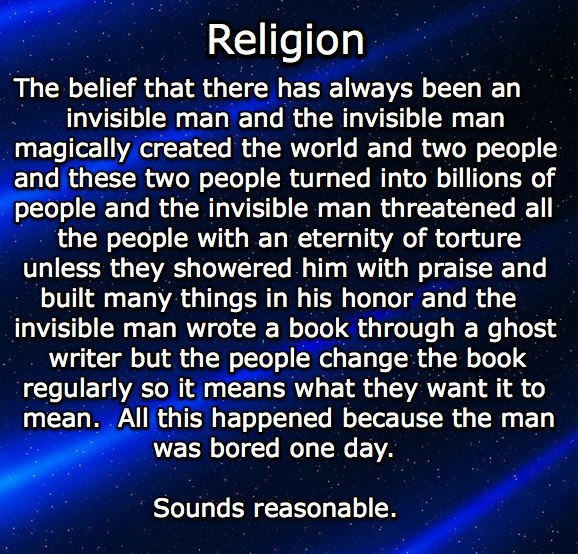I stumbled to the following image:
religionexplained.jpg (JPEG Image, 578x554 pixels)

Sometimes atheists are accused of being shrill, arrogant, blasphemous and rude when we criticize religion in terms like depicted above. That doesn't mean we're wrong, but it may turn some away from our message. However, I think it wins far more arguments and converts than it loses.
Hyperbole can be a useful tool in debates, especially when categorizing your opponent's arguments. Hyperbole has a way of simplifying the debate instantly. Once we refuse to respect conventions about blasphemy, "God" becomes a god, and then a target of ridicule.
But, it's more than that. Extreme characterization of the Christian beliefs like the one above can force Christians to examine their beliefs more closely. The reader who is shocked by the mockery implicit in the "imaginary man" reference to their god is forced to ask themselves, "in what way is that characterization wrong?" "In what ways do my beliefs differ from this idea of a capricious, malicious god?" The cumulative effect of these internal questions, even if subconsciously, can have a powerful effect, I believe. Even forcing them to ask themselves why atheists would believe this way about "God" can cause them to put themselves into our shoes and manufacture reasons for our disbelief.
This will never produce instantaneous results (other than offending the unsuspecting Christian), but I believe that it will have an effect. And always remember, "blasphemy is a victimless crime".

Wednesday, April 9, 2008
religionexplained.jpg (JPEG Image, 578x554 pixels)
Subscribe to:
Post Comments (Atom)





No comments:
Post a Comment